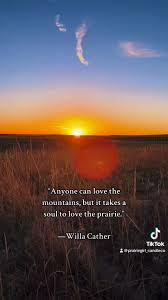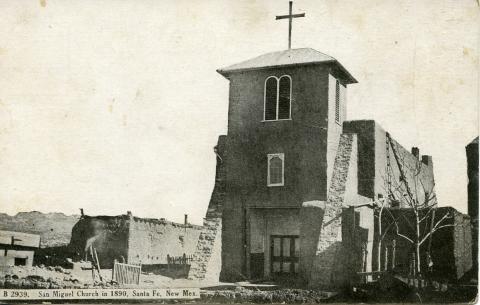Annotations From the Archives: Ask-An-Archivist
October is American Archives Month, a time when archivists across the country focus on educating patrons and the general public about the value of archives. It’s easy to connect the archives to local history and, in our case, literary history, but the very idea of a centralized, publicly accessible archives is foundational to American ideas—after being ushered in by our revolutionary partners, the French. As we start to think about America250 next year, it's time to celebrate archives!
October 16, 2025, is also Ask-An-Archivist Day, but really, every day is Ask-An-Archivist Day. Below, our archivist, Tracy Sanford Tucker, answers the questions she gets most often.
How do you pronounce Cather?
According to Henry Blackman Sell in a short article for the Chicago Daily News, Cather is "pronounced to rhyme with rather, if you please." Many interviews like Sell's 1919 interview were collected and published by L. Brent Bohlke in 1986. The volume is an invaluable resource for Cather nuggets. You can find it online but I use it so frequently that I keep a hard copy at home and at work.Did Willa Cather say, "Anybody can love the mountains, but it's takes a soul to love the prairie"?
Everyone really wants this to be true. Every so often, this quote makes the rounds on social media, and no matter how much I wish Cather had said it, I don't think she did. I find it variously attributed to "old sodbusters" or "early Dakota settlers" or generic "Willa Cathers" with no clue about the actual source.
The closest I've ever found is this quote:
“To love and appreciate the Rocky Mountains, you only open your eyes, but to love and appreciate the prairie, you must open your soul.” That came from Louis Toothman in 1961 and was printed in a National Wildlife Federation report, though they don't explain who Louis Toothman was.
Image So far, no one has identified the source of this quote.
So far, no one has identified the source of this quote.
In the last ten years, I've been unable to locate this quote in any Cather novel, short story, essay, letter, or interview. I'd love to hear from someone who can find a source! This is one of the things about the internet that drives me crazy—bad information travels twice as fast and twice as far as something real.Did Willa Cather know Georgia O'Keeffe?
Many readers of Cather's work and her biography immediately connect her with Georgia O'Keeffe—with good reason! They both visited New Mexico at the invitation of Mabel Dodge Luhan and, riding across the countryside with Tony Luhan, came to love the wild Western landscape. Though the resulting artistic output was vastly different, Cather and O'Keeffe shared an artistic palette made up of Southwestern history, the natural world, the timeless Taos pueblo, and a fascination with Norteño syncretic Catholicism. Their circle of acquaintances and influences had significant overlap, but the two women weren't friends. Willa Cather and the American Southwest and The Only Wonderful Things are two great resources for learning more about Cather's time in New Mexico. We also love to go to New Mexico, and next month will be hosting our fourth immersion trip—this time in Santa Fe! Commuter spots are still available if you'd like to join us for three days of touring, book discussions, and exploring Cather's New Mexico.
Image San Miguel Church
San Miguel ChurchWhat's the oddest thing you know about Willa Cather?
There's so much random information to be gleaned from letters and interviews, but the thing that will be of absolutely no use at all to anyone, is what type of pillow Cather preferred. Her address book contains, on a page filled with hotel addresses and preferred rooms, a note for a particular pillow: "Imperial goose down, 22x36." For reference, that's larger than a modern king-size pillow, with top-of-the-line goose down instead of the cheaper and less lofty duck down. That's a woman who knows how to travel!What does an archivist do, anyway?
Archivists are in the business of preserving both papers and information and making those things available to researchers and the general public. You don't need university credentials to read and research at the National Willa Cather Center—you just need an appointment and a subject you hope to research! Most of my day-to-day work is spent cataloging and researching the thousands of pieces in our collection, housing them in preservation-quality boxes and folders, and ensuring a proper storage environment and general safety. I spend a lot of time in spreadsheets and databases. In my particular job, I also care for the museum and art collections, create exhibitions, and lead the team that maintains the historic sites. On any given day, I might be writing an exhibit panel or a book chapter, cleaning a glass plate negative that hasn't been seen in decades, researching Victorian china painting techniques, or writing a grant.How do you remember all this?
I don't. I can't. I read and re-read not only Cather texts and non-fiction more or less constantly, and there are some important biographical works that are indispensable. More recently, digitized materials at the University of Nebraska, here at the National Willa Cather Center, and other repositories have helped to make many things easier to find. Here's what's on my reference shelf:The World of Willa Cather, by Mildred Bennett, our founder and one of a handful of people with direct connections to Cather's Red Cloud family and friends.
Willa Cather Living, by Edith Lewis, Cather's partner.
Willa Cather: A Literary Life, by James Woodress, was a groundbreaking critical biography when it was published, and though more recent books provide critical updates (and can quote from Cather's letters!), Woodress remains a gold standard for many.
Webster County: Visions of the Past, by Mabel Skjelver. For general Webster County history, building history, and geography, I'll always tell you to "look in the yellow book." You can find these, occasionally, in our used book section, eBay, or ABE Books. These sell for $75 to $150, and they're worth it. (You can use our copy in the archive if you want to test-drive it.)
The Selected Letters of Willa Cather, by Andrew Jewell and Janis Stout. This book changed Cather scholarship, since it was the first widely available compendium of Cather's letters in full. The Complete Letters of Willa Cather has now been published digitally by the Cather Archive at the University of Nebraska-Lincoln, making it even easier to trace Cather's travels and her thoughts.
The Only Wonderful Things, by Melissa Homestead, updates Cather's biography significantly and fleshes out Edith Lewis's place in Cather's life and work.
Willa Cather in Person, edited by L. Brent Bohlke, for interviews and public letters.
We look forward to welcoming you to the National Willa Cather Center's archives—in October or just about any time! We think that this small archive holds many yet-to-be-discovered treasures to enhance—or disrupt—your reading of Willa Cather. To make your visit, you can schedule an appointment or just ask a question! You can email the archivist at ttucker@willacather.org
